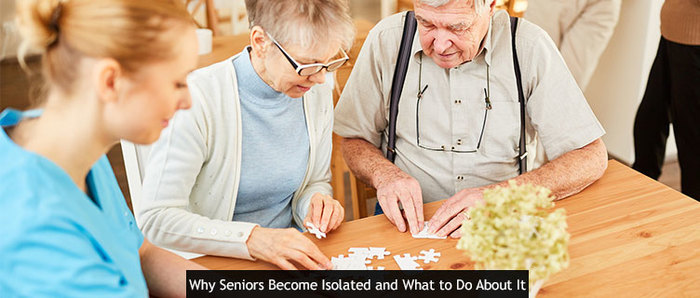We all know that seniors face more health problems than people of other ages. We don’t necessarily like to talk or even think about it, though. Let’s face it, it’s not pleasant. We don’t want to dwell on all the health problems that our parents or elderly loved ones might face in the near future, or the health problems we ourselves will face in the future, for that matter. But we do deal with it because we have to. When we see our parents struggling to take care of their homes or themselves we sit down with them and talk about it, even if it is awkward. We do it. But there are other matters we don’t talk about enough.
Mental Health
As a society, it’s only been relatively recently that people have felt more able to talk about the mental health issues they face. But there’s still room for improvement in this area. When we think about seniors’ health we often only think about it in terms of their physical health. We rarely take the time to consider their mental and emotional health. This needs to change. That is why Executive Home Care offers senior companion care.
Isolation And Depression
As a demographic, seniors face depression at alarmingly high rates. The reasons for this are many. First, it is easy to become depressed when you’re facing serious health issues. Because seniors face more physical health challenges than do younger people, it stands to reason that they also face more depression and mental health challenges. Second, depression is a common symptom of neurological conditions, such as dementia, that occur at high rates among seniors. But it goes beyond just these explanations.
Many seniors live in isolation and without companions. After you retire, you lose the camaraderie that you may have had with coworkers. Over decades of living, friends and family tend to move away or pass on, leaving you with fewer and fewer people that you know. The loss of a spouse can also be devastating but it’s important to remember that even elderly couples can become isolated together. We would all love to be there for our parents or elderly loved ones, but it’s not always possible. Even if we live in the same city or area, we can’t necessarily meet with them every day. But senior companion caregivers can.
Senior Companion Care
Senior companion care can help to solve all these problems. Senior companion care alleviates the isolation that many seniors feel as it gives seniors the ability to routinely interact with another human being. Furthermore, these senior companion caregivers can monitor the mental and emotional health of seniors. With senior companion care, we can know sooner if a senior’s memory is deteriorating of if there are mental health problems arising. Senior companion care includes:
- Providing companionship, friendship, and emotional support
- Talking, listening, and sharing experiences
- Playing games/cards and reading
- Helping keep clients in contact with family, friends, and the outside world
- Providing transportation to medical appointments, grocery stores, and errands
- Accompanying clients to recreational and/or social events
- Writing or typing letters/correspondence
- Organizing and reading mail
- Teaching/performing meal planning and preparation
- Performing light housekeeping
- Accompanying clients on walks
- Reminding clients to take medication
- Reminding clients to start or finish their meals
Contact us
To learn more about senior companion care, please contact us today.
